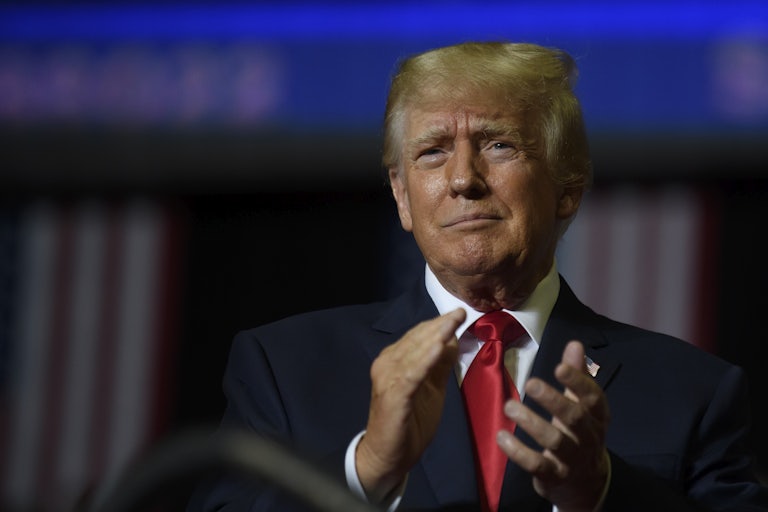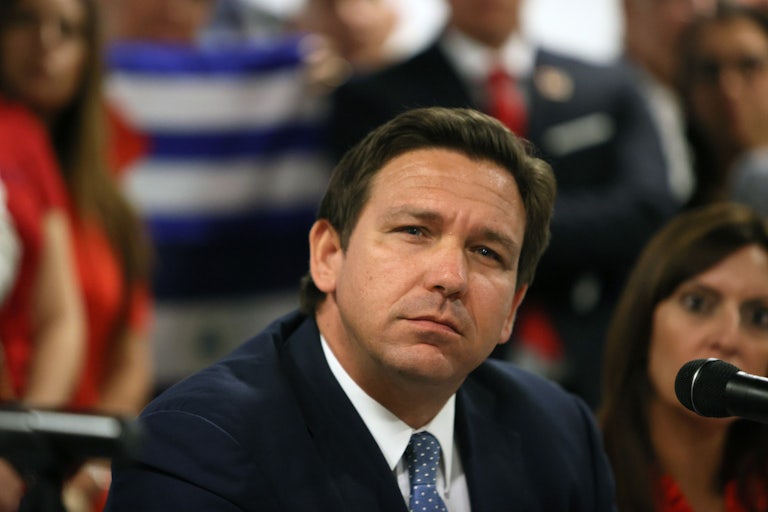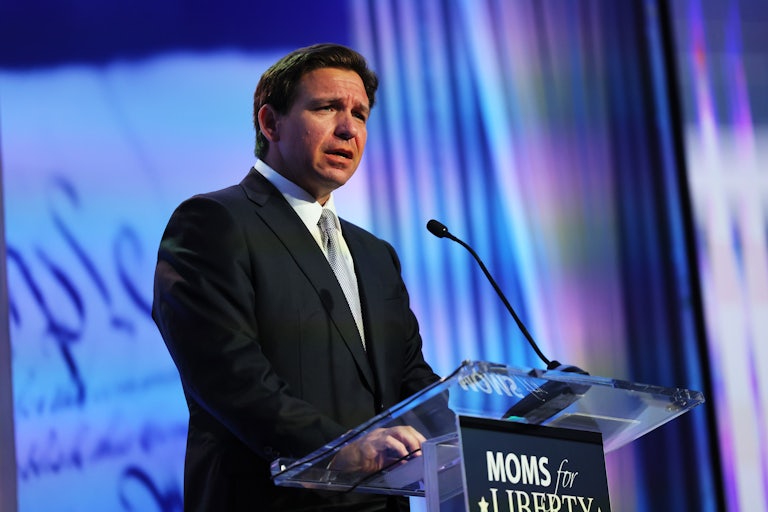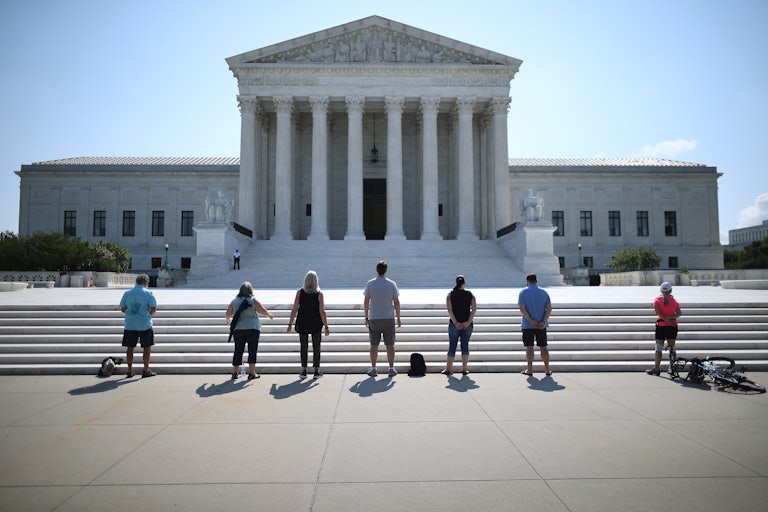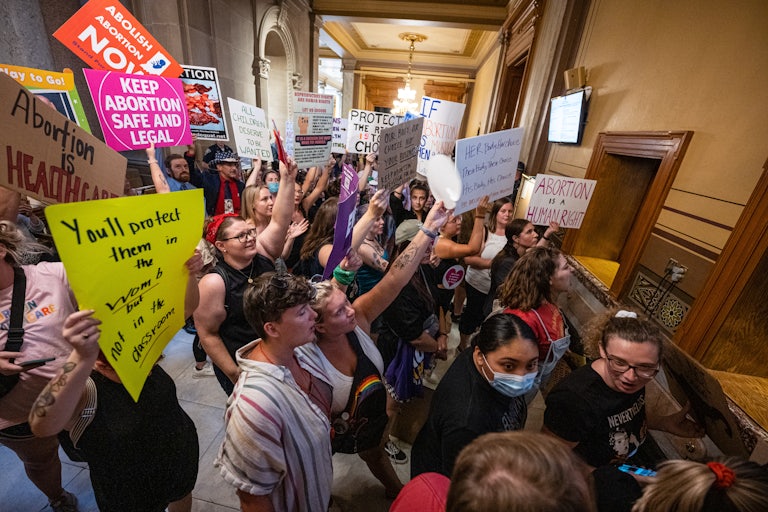North Carolina Republicans Are Trying to Disenfranchise Democrats Again
Days after the Supreme Court ruled in favor of voting rights groups in the state, North Carolina Republicans are pushing two new voter suppression rules.
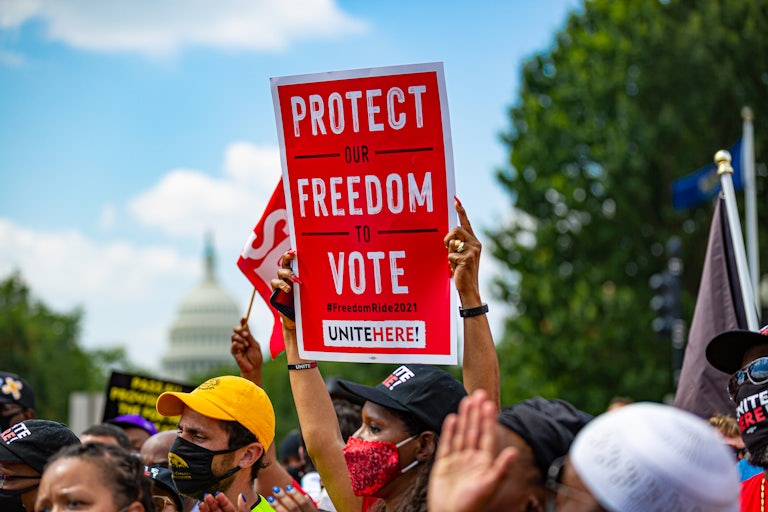
While voting rights advocates celebrated the Supreme Court’s rejection of North Carolina Republicans’ illegally gerrymandered electoral map, the state’s GOP is not tapping the brakes at all on its efforts to subvert democracy and disenfranchise voters.
Republican House Speaker Tim Moore—whose name was on the rejected Supreme Court case—is leading his colleagues to pass an array of other bills that would erode voting rights and unfairly favor Republicans in state elections. Their efforts have been buttressed after obtaining a veto-proof majority in the House in April—thanks to the defection of a Democrat. Last year, the state’s Supreme Court swung from a 4–3 liberal majority to a 5–2 conservative one. Now Moore is considering two bills aimed at disenfranchising voters that recently passed the state’s Senate.
One, Senate Bill 747, would essentially get rid of same-day voter registration, leaving voters instead to have to cast provisional ballots and then follow up and verify their identities later. It would also remove a three-day grace period for votes sent by mail, requiring mail-in ballots to be received by Election Day.
Another, Senate Bill 749, would remove Democratic Governor Roy Cooper’s ability to appoint board members to state and county boards of elections, giving it to the state legislature instead. Republicans have proposed a board with eight members—four Republicans and four Democrats—that would all but guarantee gridlock. Five years ago, the state Supreme Court ruled that a similar effort to prevent the governor from managing the state board impinged “upon the Governor’s ability to faithfully execute the laws.”
More on the state Supreme Court: After conservatives secured control, they reversed the court’s prior ruling rejecting Republicans’ gerrymandered map. In the new map approved by the Supreme Court, an evenly divided vote would produce 10 House seats for Republicans and only four to Democrats. North Carolina currently has seven Republican representatives and seven Democratic ones—a reasonable split given that the state narrowly voted for Donald Trump in 2020.
The court also reversed a prior decision surrounding a photo ID requirement. In a case (once again with Moore’s name on it), the court declared such a requirement unconstitutional; but now, a requirement demonstrably targeting minority voters is also set to be on the books, right alongside the gerrymander and aforementioned anti-democratic bills.
Right-wing election deniers like lawyer Cleta Mitchell, who supported Donald Trump’s efforts to overturn the 2020 election, have been working with North Carolina Republicans to try and make all this magic happen.
